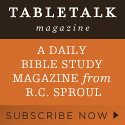Latest
-
Objections to the Christian Faith from the Unchurched and De-Churched
 Tue Dec 02, 2014
Tue Dec 02, 2014
by Resurgence -
Craig Groeschel: We Innovate for Jesus
 Tue Oct 14, 2014
Tue Oct 14, 2014
by Resurgence -
Mark Driscoll: Revelation
 Tue Oct 07, 2014
Tue Oct 07, 2014
by Resurgence -
RESURGENCE LEADERSHIP #034: JOHN PIPER, WHY I TRUST THE SCRIPTURES, PART 2
 Tue Sep 30, 2014
Tue Sep 30, 2014
by Resurgence -
Resurgence Leadership #033: John Piper, Why I Trust the Scriptures, Part 1
 Tue Sep 23, 2014
Tue Sep 23, 2014
by Resurgence

Archives
An Outpost of Jesus’ Kingdom: An Interview with Mark Driscoll

This post is an excerpt from Pastor Mark's article in the most recent issue of Tabletalk, a magazine from Ligonier Ministries.
Tabletalk: What do you think is one of the greatest sins of many pastors today?
Mark Driscoll: Sexual sin is epidemic. I recently turned forty, and when I was growing up, the Internet was not yet in existence. Today, the number one consumers of online pornography are boys ages twelve to seventeen. Young men enter into ministry with pasts that are filled with perversion. Many do not put that sin to death but continue in secret, shameful sin as pastors.
TT: What encourages you most about what you see in many pastors today?
MD: I work largely with younger pastors and am encouraged by four things:
- There is a resurgence of interest in biblically saturated, Christ-exalting, gospel-centered, big-God theology.
- There is a commitment to moving into major urban cities that have been without a strong gospel presence for generations in order to begin to work upstream where culture is created with the mindset of a missionary.
- There is an explosion of interest in church planting.
- There is a clumping of pastors from different denominations into networks for the sake of accomplishing more fruitful ministry together that also helps to lessen unnecessary criticizing and unholy competition among churches.
Theologians like Don Carson, professors like Gerry Breshears, and pastors like C.J. Mahaney, James MacDonald, and John Piper have also spoken wisdom into my life.
TT: Who are some of the people you have learned from the most in your ministry?
MD: I really enjoy biography. I find that dead mentors are often the best mentors because we see their entire lives and the implications in total. In particular, I have been greatly blessed by reading everything I can find on Charles Haddon Spurgeon, especially the multi-volume autobiography his wife finished after his death. I also have learned a lot from the lives of Augustine, Athanasius, Calvin (after whom I named my middle son), and Luther, who makes a lot of sense to me as a former Catholic altar boy. I also appreciate Francis Schaeffer, Billy Graham, John Stott, J. I. Packer, and Martyn Lloyd-Jones because of their contributions to evangelicalism.
Personally, theologians like Don Carson, professors like Gerry Breshears, and pastors like C. J. Mahaney, James MacDonald, and John Piper have also spoken wisdom into my life in strategic seasons, for which I am deeply thankful. I also learn a ton from the hundreds of church planters in our Acts 29 Network and the elders of Mars Hill Church. They are innovative and pioneering leaders who keep my thinking fresh and vision big. And The Holiness of God by R.C. Sproul was an early favorite as a new Christian.
TT: What have you learned from those who have criticized your ministry and has your life or ministry changed in any way as a result?
MD: Rick Warren once told me that, for the first time in the world’s history, criticism is instant, constant, global, and permanent. His profound observation has helped me to accept the fact that enduring critics is now, more than ever, part of the pastoral role. I have found there are actually six kinds of critics and ways to respond:
- Theological – I simply have to accept the conflict if we have differing beliefs about an essential issue.
- Jealous of Success – I need to lovingly serve them in humility.
- Misinformed – I need to try and inform them of the truth.
- Personal Dislike (e.g., tone, humor, style) – I need to consider their criticism, seek godly counsel, and either change or ignore them.
- Legitimate (e.g., sin) – I need to repent publicly and thank God for using my critics to sanctify me.
- Take Up Offense for Another Person – I need to rebuke them for meddling.
 Tabletalk is a magazine from Ligonier Ministries featuring articles from well-known reformed scholars, regular online columns, and daily Bible studies. Check out the rest of the article here.
Tabletalk is a magazine from Ligonier Ministries featuring articles from well-known reformed scholars, regular online columns, and daily Bible studies. Check out the rest of the article here.